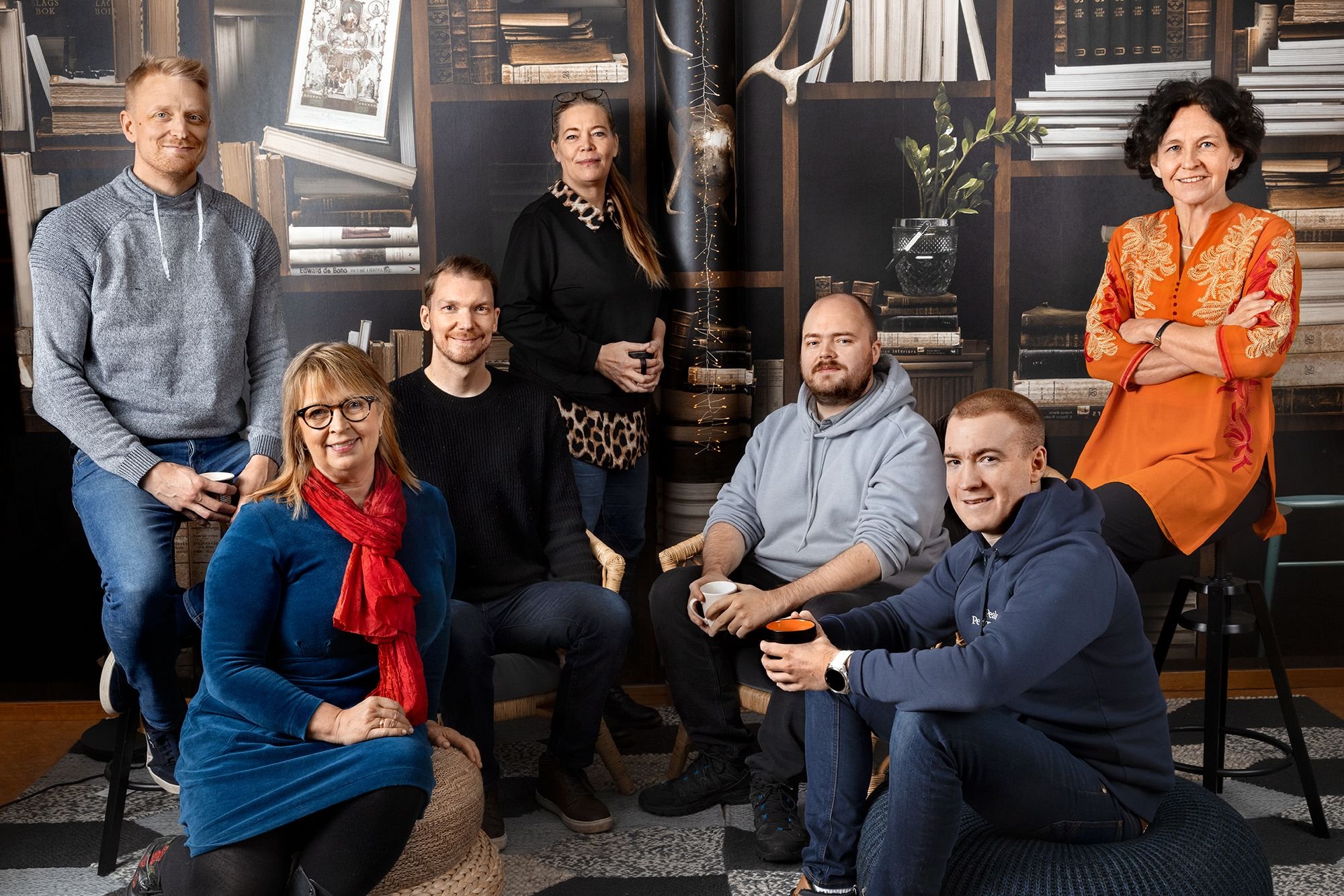
Brain Stimulation
Every patient deserves the best available rehabilitation after a stroke; whoever they are, wherever they live
Umeå-based, medtech-company BrainStimulation has developed a unique and disruptive method, RehAtt®, for stroke patient rehabilitation. With the help of smart glasses and mixed reality, they provide a stimulating and individualised form of brain training which is accessible wherever preferred – including the patient’s own home environment. The patient interacts with three-dimensional visual environments and 3D holograms along with stimulative sounds, bringing remote stroke rehabilitation to a whole new level of immersiveness, resulting in a more enjoyable experience and motivated patient.
The method has been scientifically proven to enhance cognitive and motor functions, as well as training related changes in neuronal activity. It has a dual effect on the brain – on the one hand, it generates new areas of activation in the brain (compensatory effect), on the other, it also elicits a unique stimulation of brain plasticity (reparatory effect). By activating multiple senses, and by registering the behavior of the user, the patient’s training can be optimised and tailored to the individual – even when performing the rehabilitation training from home. The results of BrainStimulation’s work have been internationally recognized by leading scientists as well as neurological centers of excellence, and RehAtt® have featured in several publications.
The technology collects important data about patient movement, including eyes, head and hands, which enables continuous scientific analysis. Already, the company has identified other areas of application beyond stroke patients, such as individuals with long-term covid-19 impairments, or patients suffering from brain trauma.
The team
The story of BrainStimulation started 20 years ago, when founder Helena Fordell, specialist doctor in neurology and scientific researcher at Umeå University, identified a challenge in how to provide accessible, precise diagnostics and individualised rehabilitation for stroke- and neurocare and provide the best possible care to stroke patients. There were no given answers, so instead, the challenge became a research project.
Ten years later, in 2011, the scientific project emerged into a company – Brain Stimulation. Having conducted decades of research and product development, the end result is a one-of-a-kind and revolutionary method for the rehabilitation of cognitive and upper limb impairments after stroke and brain injuries, that puts patient motivation at its core.
The team refer to the method as ‘Enriched Rehabilitation’; 3D holograms with the help of smart glasses, immersive visuals and music stimuli creates an interactive and creative gaming experience, resulting in a more fun, intense and effective rehabilitation environment.
Today, BrainStimulation is a team of seven, including CEO Fredrik Jonsson, and remains in the city of Umeå, situated on the Swedish east coast approximately 400 km from the Arctic circle.
Backers’ perspective
The digitization of health care is extensive, whilst rehabilitation and after care is yet an overlooked area within the health care sector. Simultaneously, an aging population in combination with an increasing proportion of stroke survivors leads to an estimated growth of 30% of people living with physical and cognitive disabilities after stroke during the upcoming decades. In addition, stroke patient care amounts to 600msek in costs annually and in Europe alone, and is estimated to almost double within the next 20 years. The scenario calls for a widespread accessible, convenient and personalised stroke rehabilitation, a need which is unmet by today’s generic, time consuming and staff heavy methods.
When we first came across this team of dedicated scientists, we were convinced they had developed a solution to this problem – Brain Stimulation hits the sweet spot of combining emerging, cutting-edge technology, including Mixed Reality glasses, with the latest scientific knowledge on brain plasticity.
Already, the company has entered into partnerships with several well-renowned and leading institutions, including Zurich University Hospital, Oxford University Clinic and Kessler Foundation, thereby having set a solid foundation for reaching the global market at an early stage. As experts in technology scaling, we are excited to support the internationalisation and commercialisation of Brain Stimulation’s scientifically proven solution, ultimately transforming stroke rehabilitation to become digitised, more accessible and equal.
